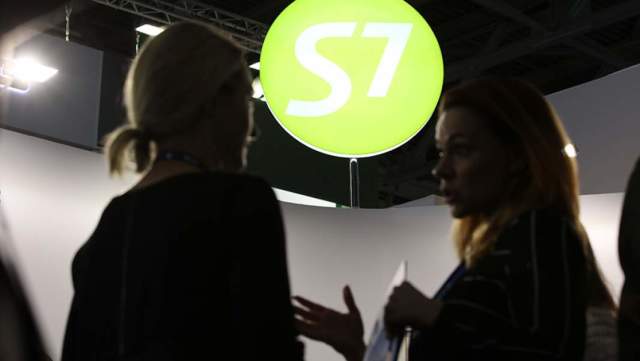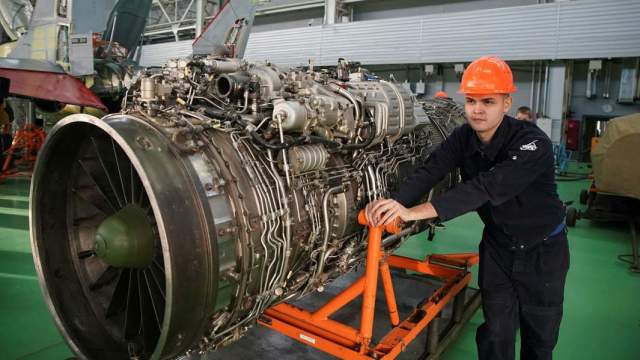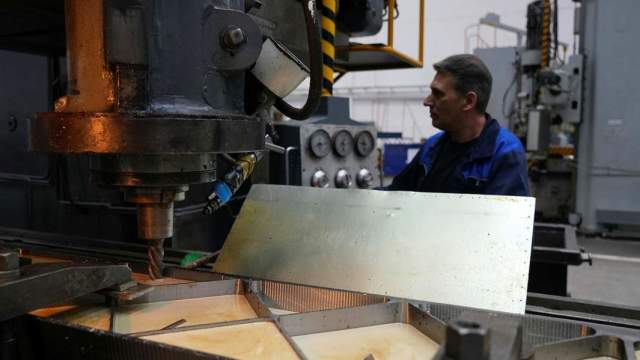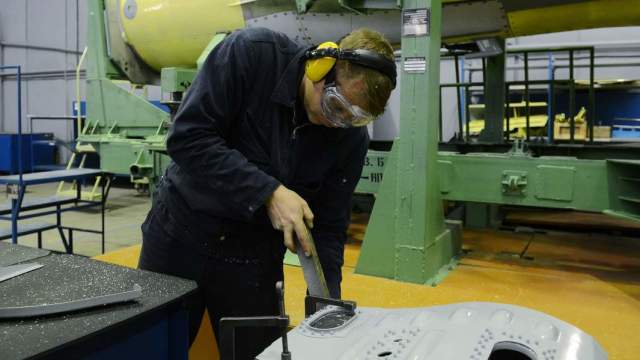What are future pilots being trained on today and are there any prospects for a new project
The enterprises of the S7 group of companies are developing a new Russian training aircraft. It is designed for four seats and is intended for initial pilot training in Russia. The board will be composite, the engine for it will also be developed by its own S7 design bureau in Rybinsk. Today, flight schools use mainly Western equipment, which is 50% faulty. The first, so far non-flying, prototype of the glider is planned to be presented in two months, the company said. Experts predict difficulties with certification — the requirements in general aviation remain too strict, this process can take from two to four years.
Training aircraft
The Russian private aviation and space group S7 Group is developing a new training aircraft for initial training in piloting skills. Vladislav Filev, a shareholder of S7 Group, told Izvestia about this.
— In Torbeevo (Moscow region. — "Izvestia") we continue engineering work on the light aircraft project. Now we have decided to create a training board for the initial training of aviation personnel in the country," Filev said.

Photo: TASS/Evgeny Razumny
Image source: iz.ru
In 2018, S7 has already announced plans to create its own light-engine aircraft in Russia. For this purpose, production was organized in the Stupinsky district of the Moscow region. However, then it was about the assembly of the turbojet business jet Victory of the American development company Epic Aircraft. This organization was acquired in 2012 by the S7 Technics, a service provider of the Russian group of aircraft maintenance services. As a result of the deal, S7 received a license for the production of Victory. At that time, the volume of investments in the project was estimated at 13 billion rubles.
In 2020, it was reported that the group also plans to develop its own small Greenwing cargo aircraft.
Composite and its own
The new aircraft will be made four-seater with two passenger seats and seats for the commander and co-pilot, S7 told Izvestia. The airframe will be created entirely from composite materials of the company's own laboratory. The engine for the aircraft will also be developed by the S7 design bureau in Rybinsk (Yaroslavl region).
— It will be a piston six—cylinder engine, - the company specified.

Aircraft engine installation
Image source: Photo: IZVESTIA/Alexander Kazakov
The first sample of the motor for static tests will be ready within the next two months, the company said. The screw for the machine will be imported at the initial stages, the interlocutor noted. The company also plans to demonstrate a life-size prototype of the aircraft in the fall.
The S7 representative confirmed that the group's designers are indeed developing a training aircraft and an engine for it. The aircraft will also be provided for flights for private purposes, the company said. The development is carried out entirely at the expense of the group. The size of the investment was not disclosed there.
The Ministry of Industry and Trade noted that it will be possible to talk about the S7 project in detail after its more detailed study. The press service of the Federal Air Transport Agency did not respond to the request of Izvestia.
Urgently needed
The authorities also declare the need to develop a new training aircraft in Russia. Rosaviation, as Izvestia wrote in May, formed its proposals in the terms of reference for the Ministry of Industry and Trade for the development of such an aircraft.
The head of the Flight Operations Department of the Federal Air Transport Agency, Vladimir Israelev, reported that the fleet of foreign aircraft at the disposal of flight schools is 50% faulty. It was about Diamond DA40/DA42, Cessna 172, L-410.
— The main problem is the engines, and there is no solution to this problem, — said Israel at the general meeting of members of the Union of Aircraft Manufacturers of the Russian Federation at the end of April.

Assembly of parts for the aircraft
Image source: Photo: IZVESTIA/Dmitry Korotaev
Irkut wants to offer Rosaviation its upgraded six-seat Yak-118 aircraft (modernization of the Yak-18T), the manufacturer told Izvestia in the spring.
The Federal State Research Institute of Civil Aviation (GosNII GA) told Izvestia that on June 21 there was a round table on the topic of initial training boards. Apart from the Irkut Yak-118, NKF Technoavia, Ilyushin Aviation Complex (part of Rostec UAC, Il-103M), Samara NPO Aerovolga (Borey amphibious aircraft), Interavia Co. presented their projects of light aircraft at the meeting." (I-1L), as well as the Victory Project company with the Tango board.
— According to the results of the round table, a decision was made on the expediency of continuing the discussion on the design features of aircraft, materials used in production, on—board equipment, software with the involvement of a wider range of specialists, - a representative of the institute told Izvestia.
According to Alexey Tikhonov, Director of Interavia Design Bureau, the approximate labor intensity for the development of a vessel of this class is 250-300 thousand standard hours. Considering that S7 has been engaged in the Torbeevo site in one way or another since 2018, the group could already spend a total of 2.5–3 billion rubles (excluding the purchase of equipment, carbon fiber and other materials), Izvestia calculated.

Production complex
Image source: Photo: RIA Novosti/Sergey Mamontov
Fedor Borisov, Chief expert of the Institute of Transport Economics and Transport Policy of the Higher School of Economics, noted that Vladislav Filev (a shareholder of S7 Group and S7 Airlines) has long been passionate about the topic of aircraft construction and his desire to create something of his own in the Russian aviation industry can only be welcomed. The group creates a training aircraft primarily for its own needs — the S7 has its own rather large flight school and it is necessary to maintain the piloting skills of employees, the expert continues.
— The previous experience of creating small boards in Russia was reduced to the fact that large design bureaus (KB) coped with this task with difficulty. As a rule, this was done by small KB. But the problem also lies in the fact that it is not enough to develop an aircraft, the main difficulty, as usual, will be with its certification," the expert suggested.
The certification requirements in general aviation remain too strict, the system is "unfriendly" for small aircraft, it does not take into account the difference in risks and, accordingly, the cost of certification work, Borisov concluded.
Alexey Kryukov, CEO of Novosibirsk Rusaviaprom, believes that it will take about 1.5–2 billion rubles to certify and launch serial production of the new S7 aircraft. As for the timing, it will take one and a half to two years to create the first flight model, and it may take two to four years to certify the model.
Anastasia Lvova

